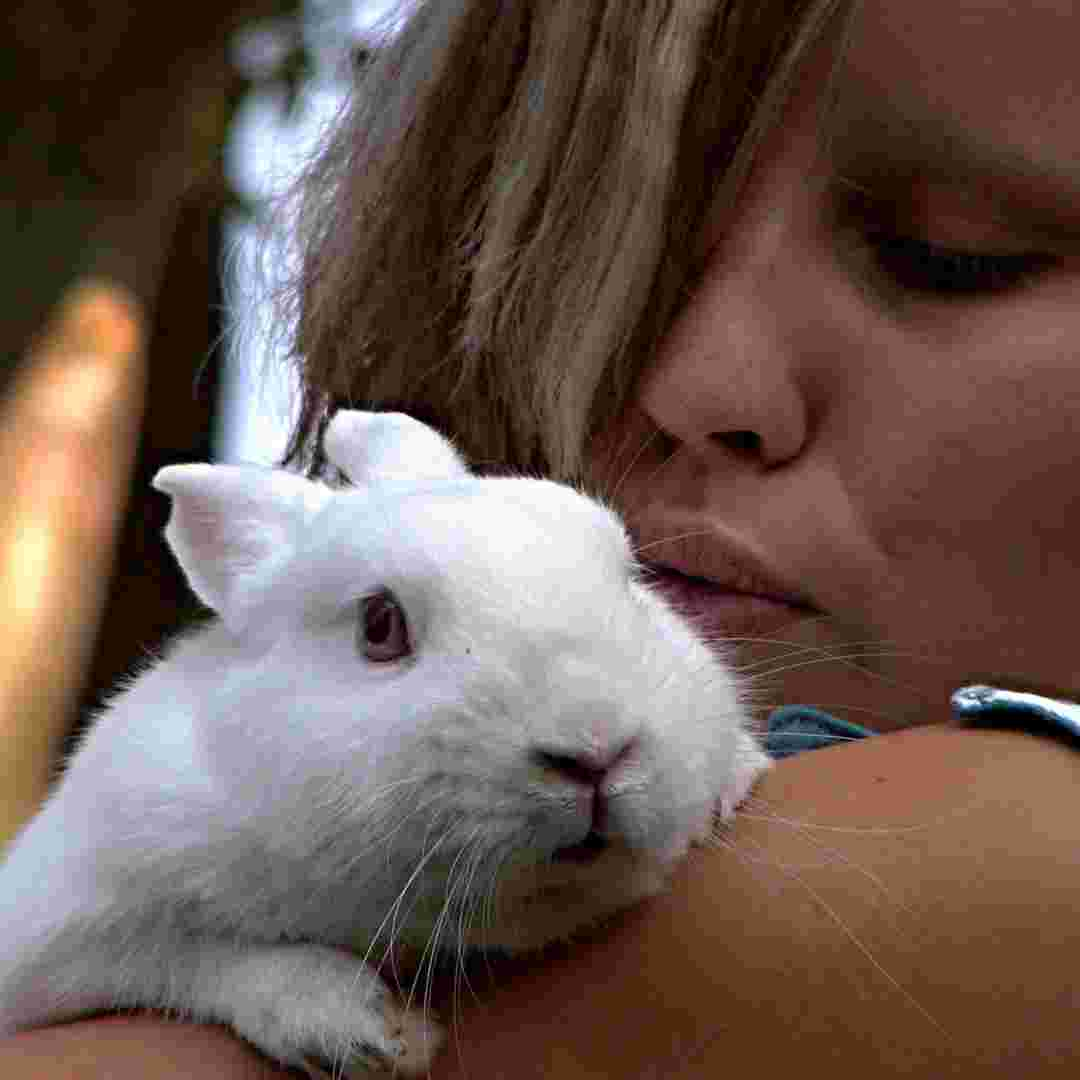Contents Table
Introduction
What Rabbit Care Supplies Do You Need?
Create a Safe and Comfortable Rabbit Home
Feeding Your Rabbit: A Nutrition Guide
Rabbit Handling and Bonding
Common Rabbit Health Issues and Prevention
Q&A
Conclusion
Introduction
Rabbits are popular pets, but they require more care than other small animals. Rabbits need lots of care and a safe, comfortable home. They need a balanced diet and regular vet visits. Know the commitment necessary in caring for a rabbit before getting one. Rabbits may be great pets with proper care.
What Rabbit Care Supplies Do You Need?
Rabbit care demands certain items. Cages, food and water bowls, hay, bedding, and toys.
The most important rabbit housing component is a cage. Large enough for the rabbit to move and stand on its hind legs. A strong bottom and easy-to-clean material should be on the cage.
Food and Water Dishes: Use non-toxic, easy-to-clean materials. The rabbit should be able to reach the dishes in the cage.
Hay: Rabbits need hay in their cages. Dust and mould should be gone.
Bedding: Use absorbent, easy-to-clean bedding. It should be dust- and mold-free and non-toxic.
Rabbits need toys for mental stimulation. They should be constructed of rabbit-safe material and replaced routinely.
Create a Safe and Comfortable Rabbit Home
A safe and comfortable environment for your rabbit is vital to their health. Social rabbits need lots of area to play and explore. Create a safe and comfortable home for your rabbit with these tips.
1. Give a big enclosure. Rabbits require lots of room to roam. Your rabbit needs a large enclosure to move about. The enclosure should be escape-proof and include lots of hiding spots for your rabbit.
2. Provide comfy bedding. Rabbit bedding must be comfortable. Use soft, absorbent bedding like shredded paper or hay. Avoid cedar or pine shavings, which might damage your rabbit's lungs.
3. Provide several toys and activities. Healthy and happy rabbits need lots of stimulus. Give your rabbit lots of toys and activities to play with. Tunnels, boxes, and chew toys are examples.
4. Make it safe. Your rabbit's enclosure should be clear of electrical cables and sharp things. Also, place the enclosure away from loud noises and other pets.
5. Feed well. Healthy eating is vital for rabbits. Feed your rabbit hay, fresh veggies, and a few pellets. Avoid feeding your rabbit processed or sugary meals.
Follow these suggestions to provide your rabbit a secure and comfortable environment. Your rabbit will be happy and healthy for years in the correct environment.
Feeding Your Rabbit: A Nutrition Guide
Rabbits are cute pets, but they need a special diet to keep healthy. Proper nutrition helps rabbits maintain a healthy weight, strong bones, and shiny coat. This post covers rabbit feeding basics and how to ensure your pet gets enough nutrition.
Rabbits are herbivores and should only eat plants. Hay should be their main food because it contains fibre and aids digestion. Timothy hay is great for rabbits since it has high fibre and low protein and calcium. Hay like oat and meadow can also be provided in tiny amounts.
Along with hay, rabbits need fresh vegetables and leafy greens. They should eat one-third of these and rotate them to acquire a range of nutrients. Kale, spinach, parsley, and carrots work. Sugary fruits should be served in little amounts as a treat.
Provide rabbits with a small amount of pellets daily. Rabbit pellets should be high-quality and made to deliver nutrition. Pellets should not exceed 10% of their diet.
Finally, your rabbit needs clean, fresh water. This should be changed everyday to remove germs and pollutants.
These suggestions will guarantee your rabbit gets the nutrition it needs to keep healthy and happy. A balanced diet and plenty of exercise will make your rabbit a loyal and loving pet for years.
Rabbit Handling and Bonding
Rabbits are kind and smart, making good pets. If you want a rabbit, you need know how to care for and bond with it.
Remember that rabbits are sensitive and can easily be hurt if handled improperly. Hold your rabbit's hindquarters and chest to pick it up. Gentle raise and hold close to body. Never grab your rabbit by the ears or neck.
To bond with your rabbit, remember that they are sociable animals and need constant interaction. Pet and talk to your rabbit daily. Rewards for good behaviour include sweets.
Rabbits need lots of exercise. Allow your rabbit to run and play in a large, safe enclosure. You can play with your bunny outside under supervision.
Finally, remember that rabbits are prey and easily frightened. Gentle, soothing voice and slow movement around your bunny. Give your nervous bunny time to adjust to you and their new habitat.
Follow these guidelines to keep your rabbit happy and healthy and bond with your new pet.
Common Rabbit Health Issues and Prevention
Rabbits are popular pets but might have health issues. Awareness and prevention of these disorders are crucial.
Dental disease is a typical rabbit issue. If rabbits don't chew, their teeth might become too large and cause pain and difficulties eating. Avoid this by giving your rabbit plenty of hay and chewable objects like wood blocks and cardboard.
Another prevalent concern is gastrointestinal stasis, or digestive slowdown. This can be caused by stress, a low-fiber diet, or lack of exercise. Keep your rabbit active and fed a high-fiber diet like hay to prevent this.
Ear mites, small parasites that breed in rabbit ears, can also cause irritation and illness. To avoid this, examine your rabbit's ears for mites and clean them with a moist cloth.
Finally, poor ventilation, chilly temperatures, and stress can induce respiratory infections in rabbits. Protecting your rabbit from chilly temperatures and keeping their habitat clean and aired can help prevent this.
You can keep your rabbit healthy and happy by preventing these common health issues.

Q&A
1. How much area does a rabbit need?
A: Rabbits need 4 square feet to live.
2. How often should I feed my rabbit?
A: Rabbits need morning and evening meals.
3. What should my rabbit eat?
A: Rabbits need hay, fresh veggies, and a little pellets.
4. How often should I clean my rabbit's cage?
A: Clean the cage weekly and change the bedding every two weeks.
5. Are rabbits hard to care for?
A: Rabbits are easy to care for, but they need regular attention. Regular grooming, feeding, and cage cleaning are required.
Conclusion
Rabbits require a lot of care but are rewarding. A balanced food, a safe and pleasant habitat, and regular grooming and exercise are needed. They require caution and patience. Rabbits may be great pets with education and dedication.
